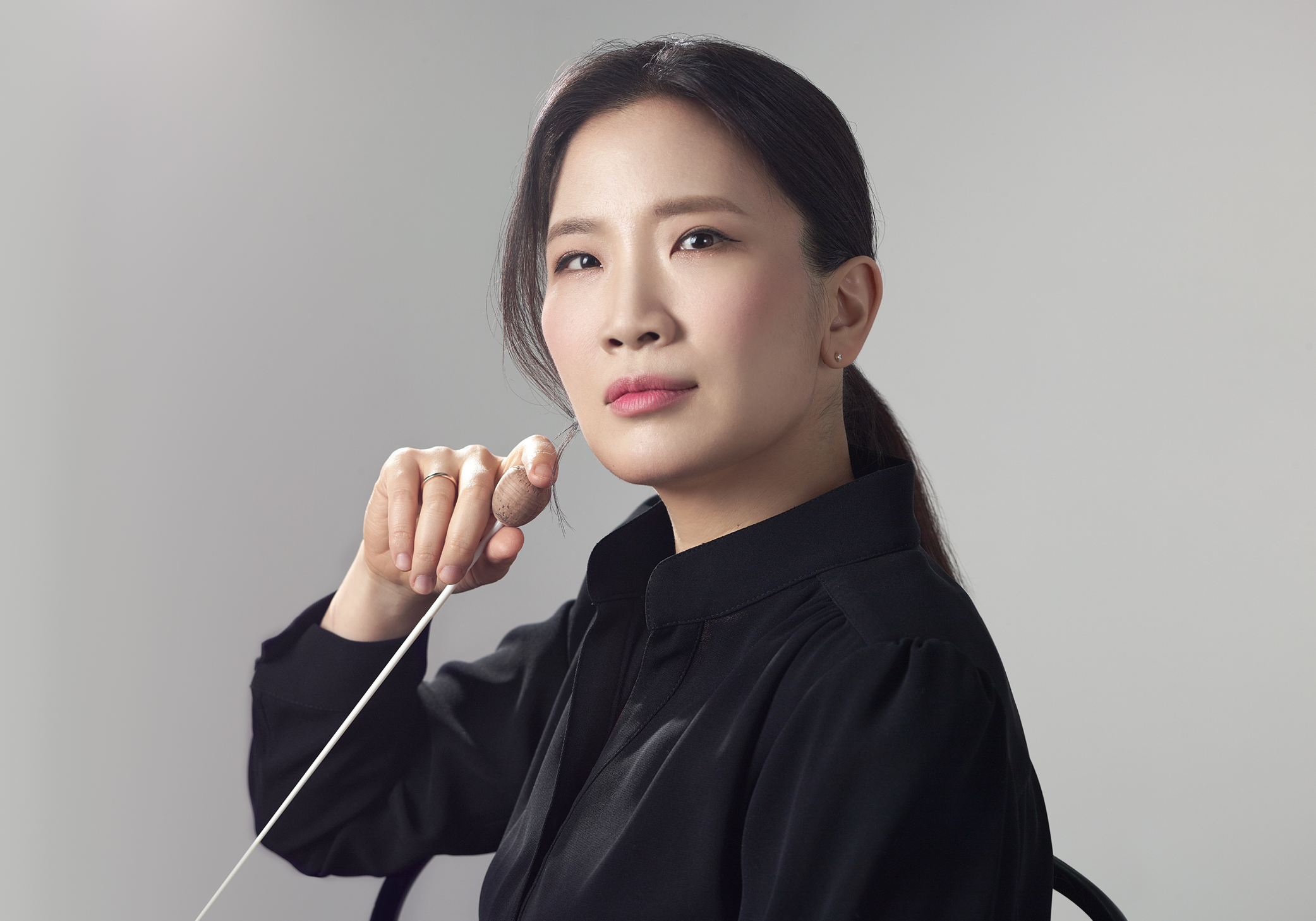The Sound of Silence
Click here to read Part 1 / Part 2 / and Part 4 of GAME-CHANGING MOMENTS IN OPERA.
The extraordinary Eun Sun Kim and I meet up one recent evening over Zoom to talk about opera—specifically, Richard Strauss’s Salome, which she’ll conduct in Houston this spring. During our conversation, she shares that she’s always been curious about Strauss.
“You know how Strauss used to conduct,” she says. “He would be standing there, just like this”—she pauses, gives me a blank stare, raises her own baton, and begins to almost mechanically conduct an invisible orchestra—“and if you see his face while he’s conducting in his old films, there’s nothing. It feels like an empty face. So I always wonder what’s going on in his brain.”
Although we’ll never know, we agree that the emotion is already there in his music—“so many colors and so many harmonies and meter changes,” as she puts it, that Strauss didn’t need to add a thing.
Eun Sun’s own conducting style doesn’t resemble Strauss’s. On the contrary, she radiates passion. But there is an irony to her desire to know what he is thinking. Like the composer, Eun Sun has an inscrutable quality—one that makes her all the more intriguing.
Eun Sun made her American debut in a most unexpected place: the Bayou City’s George R. Brown Convention Center. It was 2017, right after Hurricane Harvey. The Wortham was underwater, but the determined team at HGO had found a place where the show, Verdi’s La traviata, could go on.
Artistic and Music Director Patrick Summers had offered her an out. He’d called her up and said, “We’d understand if you’d prefer to make your American debut under other circumstances.” But, in a telling display of her spirit, Eun Sun said, “If you’re doing it, I’m doing it.”
GRB or no, her stunning artistry at the podium was plain to see, and the New York Times called her a “major star.” Soon afterward, Eun Sun was named HGO’s Principal Guest Conductor, then Music Director of San Francisco Opera, the first woman to hold that position. She is now one of the leading conductors in all of opera, regularly taking on important engagements at the great houses across the world.
Eun Sun’s musical journey started when she was a young pianist in Korea, supporting singers and focusing on playing for voice lessons, with no intention of pursuing conducting. But along the way, she developed a deep spiritual connection to Puccini. He became her gateway into the entire operatic repertoire and, ultimately, her huge career.

HGO’s spring production will be Eun Sun’s first time conducting Salome. Based on the play by Oscar Wilde, the intermission-free opera is explosively compact. As Eun Sun says, “you just breathe in and then when you breathe out, it’s already the end.” I tell her that the last, dissonant chord of the opera leaves me unsettled, in need of recovery. She nods. “Feeling all of that is our job as artists, but you have to let the audience feel that. So, we might not get to feel that. That’s the most difficult thing.”
Eun Sun marvels at the magical alchemy of the conductor’s relationship with the orchestra—the complexity and the emotion of what the musicians can convey, beyond notes on paper. “The mixed meters tell how complex Salome’s mind is,” she says. “But the transformative power in music is…it’s not just the note or the tune on the score. If the orchestra thinks with that intention, when they play it, people will get it.”
Eun Sun would never tell anyone what to think, which is why, when asked to speak about Salome’s shocking themes, she demurs. “Khori, it’s my personal thing,” she says. “I always have difficulties explaining it verbally. I tell the story with the music.”
What will she be thinking about when she takes the podium to conduct Salome in Houston? Her answer stays with me. She’ll be thinking of HGO’s administrative team, the people in the development office, the box office team, the creatives and the crew, everyone at the company working behind the scenes to make the moment come together. Beyond them, she’ll think of the audience, the community, the big, wide world. She’ll imagine them all behind her as she faces the musicians in the pit, the artists on the stage.
And finally, she’ll think of herself standing between those two worlds, the conduit connecting what’s behind her to the transcendent art in front of her. “What fascinates me about my job,” she says, “is that I want to tell a story to someone, but I’m not saying anything. I’m not producing any sound.”